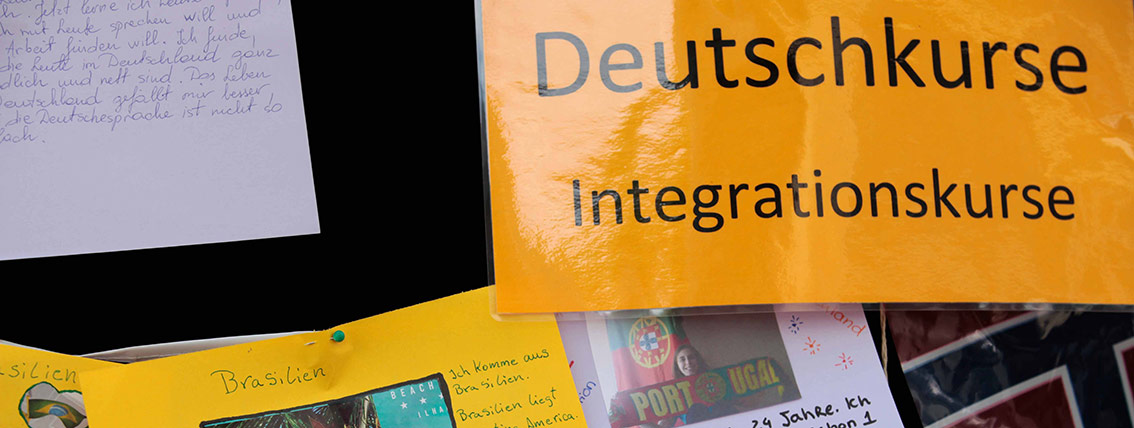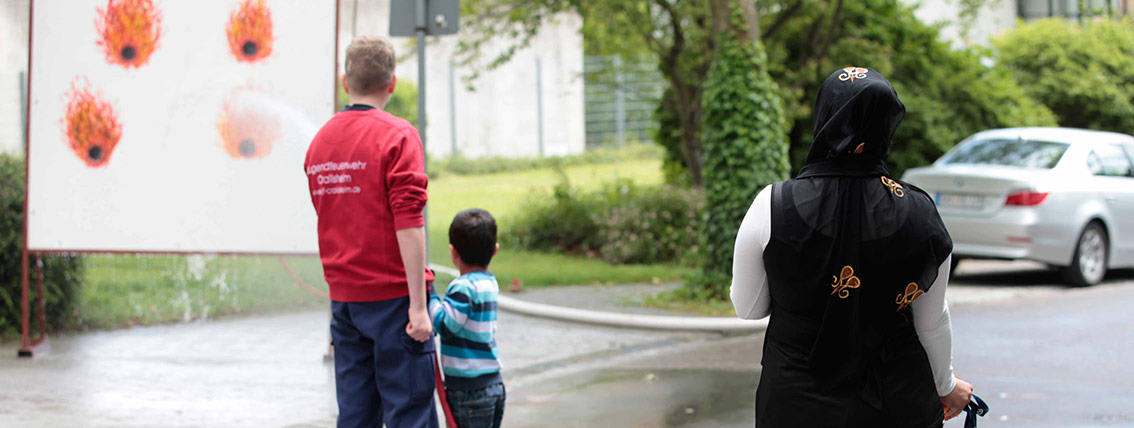Navigation
Navigation







There are a number of ways to find accomodation:
1. Tenancy Agreement (Mietvertrag)
Before renting accomodation, please inquire if there are any additional ancillary monthly charges (Nebenkosten) in addition to the rent (Miete) and the amount. The rental agreement should be in writing and contain all relevant matters, as verbal agreements often result in conflicts afterwards. Read the rental agreement very carefully before signing it. Pay attention to any additionally provisions and get advice regarding anything which is unclear. When taking over the accommodation, together with the landlord (Vermieter), prepare a handover certificate (Übergabeprotokoll) recording any defects. Also pay attention to the notice period (Kündigungsfrist) which is usually three months.
The information can be found on the page of the German Tenants Association (Deutscher Mieterbund e.V.)
The costs for renting accomodation are made up as follows:
a) Rent Deposit (Mietkaution)
This may not exceed three months‘ net rent. It will be held in a savings account (Sparbuch) as security for the landlord in case the tenant (Mieter) fails to pay the rent or the ancillary charges or is responsible for damage to the accomodation. After the tenancy agreement expires, the deposit will be returned to the tenant, plus interest (Zinsen), less a deduction for any damage for which the tenant is answerable.
b) Rent excluding ancillary charges (Kaltmiete)
This will usually be transferred to the landlord, in advance, by the third day of the month at the latest.
c) Rent including ancillary charges (Warmmiete)
This is composed of the rent excluding ancillary charges (Kaltmiete) plus the ancillary charges. As a rule, one pays the landlord a flat monthly flat charge for the ancillary costs); e.g. heating, warm water, cold water and rubbish disposal (see 7. Waste Disposal in the Schwäbisch Hall Administrativ District - Abfallentsorgung); together with the rent. Clarify which ancillary charges run over the landlord. At the end of the year, the meters will be read in order to ascertain the actual consumption, and an ancillary charge statement (Nebenkostenabrechnung) prepared based on the actual consumption. It will thus be clear whether the monthly ancillary charge advance payments (Nebenkostenvorauszahlungen) were sufficient or whether an additional payment (Nachzahlungen) is due.
Additional ancillary charges will generally not be charged via the landlord, but directly by the supplier to the tenant. You should deal with this as soon as you move in.
2. Advice for Welfare (Sozialhilfe) and Unemployment Benefit (Arbeitslosengeld II) Recipients (Empfänger)
Before signing your tenancy agreement, contact ask your welfare department (Sozialamt) or job centre (Jobcenter) contact whether the size of the accomodation and the rent excluding ancillary charges are appropriate, and whether the costs will be taken over by the welfare department or the job centre.
The future landlord will provide you with a certificate of the rent payable (Mietbescheinigung) for presentation to the welfare department or job centre.
If the landlord insists on a rent deposit, you must also apply for payment of the rent deposit before signing the contract! Only after approval has been granted may the rent deposit be assumed, usually as a loan.
For renting some accomodation, a Public Housing Eligibility Certificate (Wohnberechtigungsschein [WBS]) is required.
If income is below a certain limit, it is also possible to apply for “Housing Benefit” (Wohngeld). Information regarding Housing Benefit can be obtained from your Municipal Administration or the Housing Benefit Department (Wohngeldstelle) at the Administrative District offices.
3. Public Housing Eligibility Certificate (Wohnberechtigungsschein [WBS])
Under certain conditions and income limits, you can apply for written permission to rent a social housing. The presentation of this certificate (WBS) is the requirement to rent a reasonably priced council flat. You will receive the certificate (WBS) from your Municipal Administration.

